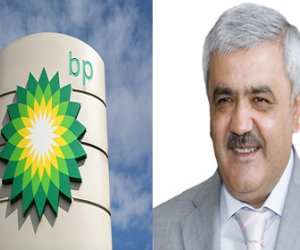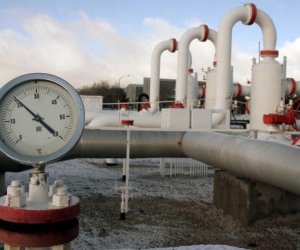Azerbaijan watches for dissent as economy slows

Azerbaijan is keeping a close eye on any sign of dissent as economic problems mount before a parliamentary election this year in the oil-producing former Soviet republic.
Hit by the fall in global oil prices, the rouble's drop against the dollar in neighbouring Russiaand the separatist war in east Ukraine, the South Caucasus country devalued the manat currency last month.
With hardships growing before November's parliamentary poll, some discontent can already be felt in the mainly Muslim country of 9 million, ruled firmly by President Ilham Aliyev since he succeeded his father as president in 2003.
"All the prices have risen, everything is very expensive ... Why don't they raise our salaries and pensions?" said Lala Sharifova, a maths teacher from the capital Baku.
Only 30 people gathered in the centre of Baku on Saturday to protest against rising prices. But police, who frequently break up even the smallest protests, quickly detained seven of them before releasing them shortly afterwards.
The police reaction is a sign of nervousness by the authorities, widely accused of human rights abuses and muzzling and jailing opponents. But there is almost no chance that public discontent could prevent Aliyev's ruling Yeni Azerbaijan Party from holding on to power in November's poll.
"There is no threat to the leadership, as opposition in Azerbaijan is not strong enough," said Fazil Mustafa, an independent analyst, who said many people saw the government as having safeguarded stability for many years.
French credit insurer Coface said, however, that social tensions could rise.
"The slowing in economic growth could ... lead to increased tensions, especially in the run-up to the national assembly elections in November 2015," it wrote. "Nevertheless, the voting is unlikely to upset the continued domination of the presidential party."
In a report on its website, it also cited the risk of regional instability from a long-running territorial dispute with Armenia.
ALIYEV DEFENDS DEVALUATION
Azerbaijan, which lies between Russia, Iran and Turkey, has been courted by the West as a transit route for U.S. troops to reach Afghanistan and an alternative to Russia in supplying oil and gas to Europe.
Big Western oil companies such as BP, Exxon Mobil and Norway's Statoil have dominated the Azeri oil industry since the collapse of the Soviet Union, while relations between Moscow and Baku have been mostly cool.
Aliyev, who has maintained a delicate balance between Russia and the West, showed his concern about the economic situation by going on television last week to explain why the central bank devalued the manat by 33.5 percent against the dollar, and by 30 percent against the euro, on Feb. 21.
Five days earlier it had abandoned the manat's peg against the dollar and begun using a dollar-euro basket to manage the exchange rate, becoming the latest of Russia's regional trade partners to feel the impact of the rouble's decline.
He said that even in the days after dropping the currency peg, the central bank had been forced to sell about $500 million a day to defend the manat. "If such a situation had continued, the currency reserves could have reduced significantly."
Central bank reserves fell by nearly $1.13 billion in December and by $1 billion in January to stand at $12.68 billion, down more than 10 percent in the past year. Data for February are not yet available.
Economic analysts say the government's target of 4.4 percent growth this year is at risk because it envisages oil at $90 a barrel. Brent crude is now trading near $60.
Oil and gas account for 95 percent of the country's exports and 75 percent of government revenues.
"I don't expect the oil price to exceed $60-$65 per barrel this year. That's why a revision of the budget is inevitable," Vakhid Akhmedov, the deputy head of parliament's economic committee, told Reuters, predicting this could happen in May.
Azerbaijan's 2015 budget anticipates revenues of 19.4 billion manats. Analysts say it would lose 9 billion manats a year in oil revenues if the average price of oil were $40 per barrel.
Meanwhile inflation is on the rise. Announcing moves to monitor prices, the president said "very serious measures" would be taken against any businesses that increased them artificially.
The government has forecast annual inflation of 2.3 percent in 2015, up from 1.4 percent in 2014, although central bank president Elman Rustamov said last month prices could rise by 5-6 percent this year.
(Reuters)
Similar news
Similar news
Latest news 
More news 



































 Photo
Photo 



 Video
Video 

